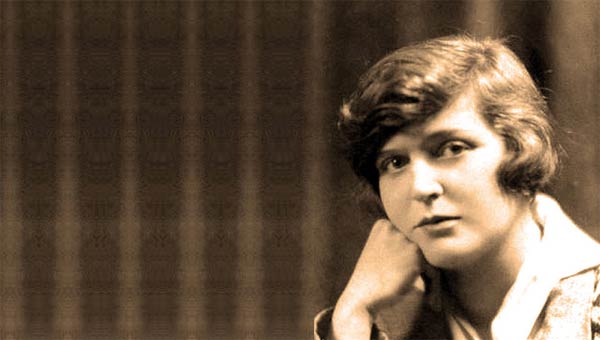by Jarrett Hoffman
TODAY ON THE WEB:
Tonight at 7:30 pm, as part of its SalonEra series, Les Délices will explore “The Orpheus Myth” through different artistic interpretations of that story over the centuries, including music by Monteverdi, Charpentier, and Rameau, as well as Marcel Camus’ 1959 film Black Orpheus. Joining host Debra Nagy are soprano Michele Kennedy, tenor Jason McStoots, and musicologist Susan McClary. Click here at start time, or watch on-demand for 48 hours. It’s free, but a $10 donation is suggested.
Speaking of Les Délices, today is also the last day to watch “Machaut’s Lai of the Fountain” on their ticketed Concert Series. Read Daniel Hathaway’s review, and watch the concert here.
And Carnegie Hall delves into Shostakovich’s opera Lady Macbeth of Mtsensk today through two events. Learn about the opera at 5:00 through a presentation titled “The Tragedy of Katerina Ismailov,” then watch a rebroadcast of a 2006 Dutch National Opera production at 8:00 pm.
More details in our Concert Listings.
TODAY’S ALMANAC:
Three particularly notable birthday anniversaries to celebrate today. Two of these figures were born in New York City: Kay Swift (b. 1897, the first woman to write the complete score to a Broadway musical) and Murray Perahia (b. 1947, considered one of the greatest living pianists).
And third, an underrecognized Parisian composer on whom we’ll train our focus today. Born on this date in 1892 in Saint-Maur-des-Fossés, southeast of the City of Light, Germaine Tailleferre was the only female member of the post-World War I group of composers known as Les Six. Her varied output included operas, ballets, film music, concertos, songs, and orchestral and chamber music.
One of the best ways to celebrate her career is by listening to her Le marchand d’oiseaux. Full of fresh-flavored neoclassicism, it’s no wonder that it was the Ballet Suédois’ most frequently performed ballet in the 1920s. A performance led by Perry So (with perhaps the BBC Welsh National Orchestra, as one commenter suggests) is available on YouTube.
Another highlight is her impressionistic and deeply atmospheric Ballade for piano and orchestra, heard here in a recording by the Deutsche Radio Philharmonie Saarbrücken Kaiserslautern, led by Pablo González and featuring Florian Uhlig as soloist.
It’s also important to understand how sexism obstructed Tailleferre’s career and legacy, a topic that Timothy Diovanni (now an arts writer for Dallas Morning News) explored in two articles written for Women’s Philharmonic Advocacy in 2017.
In the first essay, Diovanni delves into the men in her personal life who impeded her artistic progress: her discouraging, hostile, and verbally abusive father, as well as her two husbands, whose behavior ranged from jealous to controlling, threatening, and violent.
The second covers the ways that critics and historians have described her work — often dismissively, using gender-coded language, and training their focus on her appearance rather than her music.
In history, it’s very easy to oversimplify the lives of the characters who appear along the way, so that they barely seem like real people at all. Indeed, many well-regarded encyclopedias do just that with their short and useful summaries that, in the end, leave out so much about a person’s life. On that note, Diovanni makes an important point near the conclusion of his first article:
Tailleferre is not just an eleven-letter name in a music history textbook, but rather she was a real, living woman who had to negotiate social pressures and overcome tremendous injustices.





